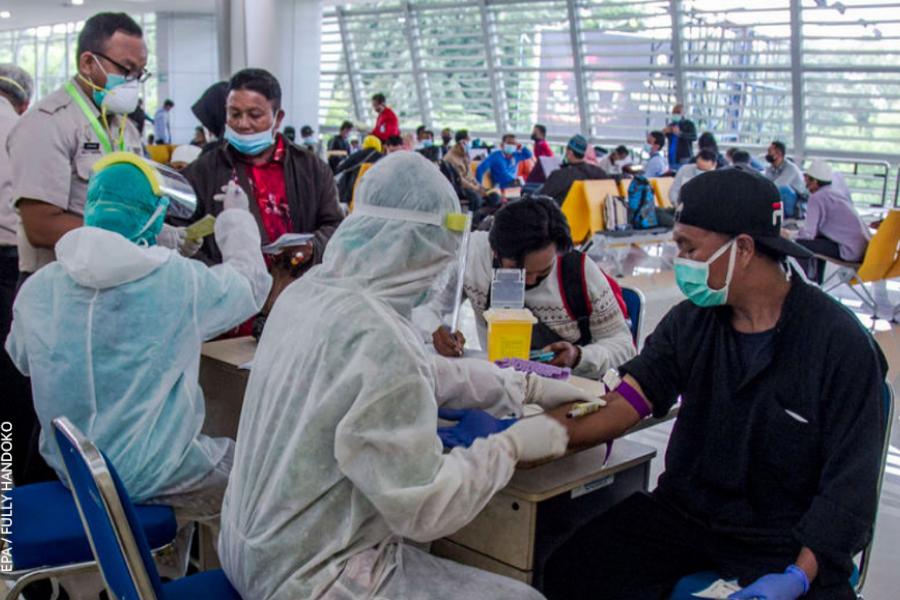UN Human Rights Office urges Asia-Pacific States to release detained migrants, suspend forced returns amid COVID-19 crisis
09 April 2020
Bangkok, 9 April 2020 – Governments across the Asia-Pacific region must do everything they can to protect the health of migrants in the wake of the COVID-19 crisis, including releasing the most vulnerable from overcrowded and unsanitary immigration detention centers and suspending forced returns as the global pandemic intensifies, the UN Human Rights Office for South-East Asia said.

Disturbing reports have emerged across the region of extreme hardships faced by migrants who are unable to access adequate virus prevention and care, either because they are excluded from national response strategies or because they lack the means to pay.
The crisis has put millions of migrants out of work in recent weeks, and many of those trying to return home have been stranded with little means to support themselves as international and internal borders close. Some have faced hostility, stigma and even violence as governments introduce emergency powers and stepped up migration controls such as the suspension of visa processing, enhanced surveillance, selective entry bans and mandatory quarantines.
“Migrants are an integral part of our communities, and only by including them fully will we be successful in overcoming COVID-19,” said Cynthia Veliko, Regional Representative of the UN Human Rights Office for South-East Asia.
Migrant communities in the Asia-Pacific region often live and work in inadequate and unsafe conditions, without access to clean water, sanitation and hygiene. Many are homeless or live in crowded settlements that put them at greater risk of being exposed to the pandemic’s rapid spread.
The UN Human Rights Office commends the positive measures introduced in some countries in the region such as Thailand, Malaysia, Maldives, Bangladesh, Republic of Korea and New Zealand. Those measures have included establishing dedicated clinics for migrants, suspending the arrest and detention of those who come forward to be tested, removing requirements for health officials to report immigration status, safely repatriating those who are stranded, and implementing short-term amnesties.
“But much more needs to be done,” Veliko said.
States should immediately release vulnerable migrants currently confined in immigration detention centers, notably children and their families. If the health and safety of detainees cannot be guaranteed, non-custodial and human rights-based alternatives to detention should be implemented as a matter of priority.
Governments should also halt the forcible return of undocumented migrants for the duration of the COVID-19 pandemic, particularly in countries or areas lacking adequate prevention and care.
“Firewalls” between healthcare providers and immigration enforcement should be established so that all migrants are able to effectively access COVID-19 testing, diagnosis and health care services without fear of penalties.
States should also extend residence and work permits in a timely manner in light of border closures and travel restrictions and put in place rules-based pathways to regularize the situation of migrants who would otherwise face immigration penalties.
Finally, governments in the region should speak publicly about the important role of migrants in their communities, including where they are working at the frontline of response to the crisis, to confront xenophobia and related intolerance.
“This is a time to come together as a human community and work together within and across borders to recognize and prioritize those most vulnerable to the virus and those most at risk of being left behind in the response,” Veliko said.



